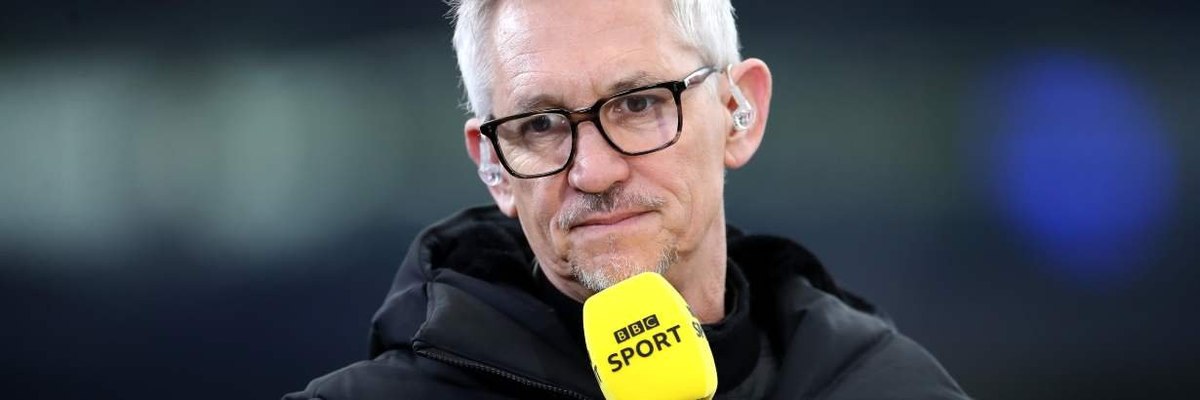By the time you get around to reading these words Gary Lineker may already have returned to his rightful slot on our Saturday night television screens. Did I say ‘rightful’? There are many who believe he should have been banned from the box for his Twitter comments about ‘1930s Germany’ and drawing comparisons with the government’s immigration plans. Many more thought the opposite. They say the BBC should never have given him the boot. And they believe the episode has strengthened Lineker and weakened the BBC. What are your views?
Tim Davie had made clear his views about the tricky question of BBC stars appearing on social media in his inaugural speech after his appointment as director general of the BBC nearly three years ago. He said: ‘If you want to be an opinionated columnist or a partisan campaigner on social media that is a valid choice, but you should not be working at the BBC.’
He went on to say that he would introduce new editorial rules and, for the first time, big name stars (and not just journalists) would be bound by the demands of impartiality on their own social media platforms. He told MPs later that ‘The enforcement policies will be very clear…. We will be able to take disciplinary action. We will be able to take people off Twitter. I know people want to see hard action on this. I am prepared to take the appropriate disciplinary action, all the way to termination.’
Tough talk indeed and one of those who was distinctly unimpressed was a certain Gary Lineker. He commented: ‘I think only Twitter can take people off Twitter.’
So the seeds of today’s ‘crisis’ were sown three years ago. The principle combatants: a new DG keen to make his mark and to protect the organisation from political attack. And a star sports presenter who did not think the BBC’s new offside rule should apply to him.
BBC supporters felt that banging the drum for impartiality was exactly the right thing to do, given how much political pressure the corporation was coming under from a Tory government led by Boris Johnson buoyed by its big majority in the December general election.
The licence fee – the very lifeblood of the BBC – was coming under increasing pressure too. The new Culture Secretary, Nadine Dorries, had declared that the 2022 settlement would be the last. She justified her attack on the BBC in part on its failure, as she saw it, to be impartial. She said: ‘I have made it clear that the BBC needs to address issues around impartiality and groupthink.’
The response from the BBC was to try to convince its many critics that it was capable of enforcing strict control over not only its journalists but over its stars who wanted to air their views on social media - no matter how controversial they may have been.
So the stage was set for a Premier League battle between the BBC’s biggest boss and the sporting world’s biggest star. The problem for Davie was that Lineker refused even to come out of the dressing room for a chat about the rules. According to his critics, Davie had committed the crucial error of leaving himself no room for manoeuvre. He could have simply announced: ‘We are an accountable organisation. We have a complaints procedure, the executive complaints unit, which will look into it and report back.’ But he didn’t. He chose the nuclear option instead.
That, say his critics, was a big mistake. They point out that Lineker had known exactly what he was doing when he posted his tweet… and how his bosses might react. After all, the BBC’s complaints unit had found against him only last October for another political tweet that, it said, was in breach of the relevant guidance and did not meet the BBC’s editorial standards on impartiality.
So Lineker calculated that he could win any battle and he was right. He proved that a star presenter with a lot of star friends and a lot of public support was more powerful than the most powerful man in the BBC.
So now what?
How much (if any) long-term damage do you think this has caused the BBC? It’s hardly on the same scale, for instance, as the massive row that followed the BBC reporting that the dossier claiming Iraq had weapons of mass destruction had been deliberately ‘sexed up’. That happened 20 years ago and led to a terrible war with incalculable consequences. The BBC was condemned by an inquiry set up by the government at the time but supported overwhelmingly by public opinion. By those standards a row over a tweet is small beer indeed.
But perhaps you think the vital matter of free speech is at stake here. It’s accepted by virtually everyone that journalists who work for the BBC should not be allowed to express their own views publicly on controversial issues. Should that same restriction be extended to stars like Gary Lineker who have become hugely famous because the BBC has given them a platform or should they be allowed to say what they wish on whatever subject they choose?
And what about the BBC? Has it been damaged and, if so, how badly?
Let us know
Picture: Getty










